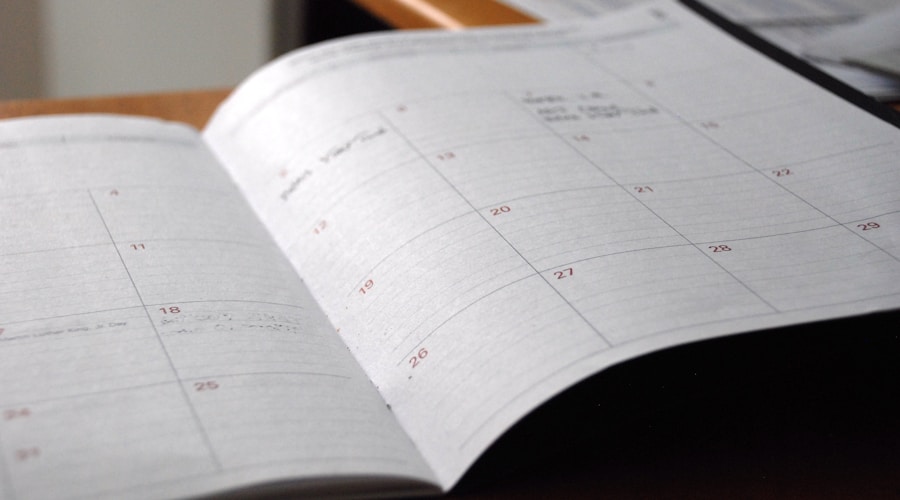Welcome to the guide on writing an impactful resignation letter. Whether you've found a new opportunity, are pursuing further education, or just need a change, leaving a job is a significant milestone. It's essential to resign with grace and professionalism to maintain a positive relationship with your soon-to-be former employer and colleagues. This guide will outline the steps to take in composing a heartfelt and professional resignation letter that communicates your departure with dignity and respect.
Remember, "How you leave a job is just as important as how you start it, so make sure to do it right," advises career coach Tamara Rasberry.
Now, let's delve into the art of crafting a resignation letter that leaves a positive impression and smooth transition for both yourself and the company.
Introduction to Resignation Letters
When it comes to leaving a job, one of the most important aspects of the process is writing a resignation letter. This document serves as a formal notification of your intention to leave the company and is a crucial part of your professional exit.
In the words of author and career expert Michael Page, "A resignation letter is your final opportunity to leave a positive, lasting impression with your employer."
Your resignation letter should be composed with care and consideration, as it will be kept on file and potentially referenced in the future. It is an opportunity for you to communicate your departure with grace and professionalism. Therefore, taking the time to craft a well-written resignation letter is essential.
Timing Your Notice Correctly
When it comes to resigning from a job, timing is everything. It's crucial to consider the impact of your departure on your current employer and colleagues. The standard notice period is two weeks, but certain positions or companies may require a longer notice. On the flip side, if you're in a sensitive or critical role, you may need to provide a longer notice to ensure a smooth transition.
According to HR expert Susan Heathfield, "It's important to consider the impact your departure will have on the team and the projects you're involved in. Giving the right amount of notice shows respect for your employer and allows for a proper handover."1
When deciding the best time to submit your resignation letter, take into account any ongoing projects or upcoming deadlines. You want to ensure that your departure doesn't leave your team in a challenging position. Scheduling your notice at a time when your workload is more manageable can help ease the transition for both yourself and your colleagues.
Remember, the way you handle your departure reflects on your professionalism and integrity. Being considerate of your employer's needs during this time can leave a positive lasting impression.

Writing a Clear and Concise Resignation
When it comes to writing your resignation letter, it's important to keep it clear and to the point. You want to avoid going into extensive detail about your reasons for leaving, as this may not be appropriate for a formal resignation letter. Instead, focus on the key information that your employer needs to know.
As career expert Alison Doyle suggests, "You don't need to include a lot of detail about why you're resigning. Provide the date of your last working day, and offer to help with the transition."
So, when crafting your resignation letter, make sure to include the following:
Your intention to resign from your position
The date of your last working day
A brief statement expressing your gratitude for the opportunity to work with the company.
Remember to keep the tone professional and courteous throughout. It's crucial to leave a positive impression as you make your departure.
And as career coach Cheryl Hyatt advises, "A good general rule is to give at least two weeks' notice before your last working day. This will give your employer ample time to make necessary arrangements for the transition."2
By adhering to these guidelines, you can ensure that your resignation letter is as clear and concise as possible, allowing for a smooth and professional exit from your current position.
Expressing Gratitude and Positive Memories
When expressing your decision to leave the company, it's important to acknowledge the positive experiences and relationships you've had during your time there. This will help leave a lasting impression of professionalism and gratitude.
Remember to express your appreciation for the opportunities and support you received during your tenure. As career expert, Liz Ryan, states, "Expressing gratitude in your resignation letter is a true sign of professionalism and leaves the door open for potential future opportunities".
You can mention specific projects, achievements, or experiences that have been meaningful to you during your time at the company. For example, you could say, "I am grateful for the chance to lead the marketing team through the successful launch of our new product last year. It has been a highlight of my career at this company."
Furthermore, it's essential to express your gratitude towards your colleagues and supervisors. You could highlight the positive relationships you've built and the support you've received. For instance, you might write, "I will always cherish the collaborative spirit and mentorship I received from my colleagues and supervisors. It has truly enriched my professional growth."
By expressing gratitude and recalling positive memories, you leave a lasting impression of professionalism and appreciation. This can set the stage for maintaining positive relationships even after you've moved on to new opportunities.

Discussing the Transition and Next Steps
As you discuss your transition and next steps in your resignation letter, it's crucial to show that you are committed to making the process as smooth as possible for your current employer. You want to exhibit professionalism and a willingness to assist with the transition period. This can help to ensure that you leave on good terms and maintain positive relationships with your colleagues and supervisor.
One approach to discussing the transition and next steps is to offer your assistance in finding and training your replacement. Express your willingness to help in the recruitment process, such as by drafting a job description or participating in interviews. This attitude demonstrates that you are proactive and want to leave your current team in the best possible position.
You can also offer to document your daily tasks and responsibilities to make the transition easier for the person who will take over your role. This can assist in maintaining continuity and productivity within the company.
In the words of business coach Dorie Clark, "When you're leaving a job, be as helpful as possible. It's not just the decent thing to do – it's also in your self-interest. You want to be known as someone who always makes the team stronger."
By discussing the transition and next steps in a positive and helpful manner, you can leave a lasting impression of professionalism and grace.
Keeping a Professional Tone Throughout
When writing your resignation letter, it is crucial to maintain a professional tone from start to finish. Remember, this letter will be filed in your employment record and may be referred to by future employers. It's important to leave a positive impression on your soon-to-be former employer and colleagues.
Start by addressing your letter to the appropriate person, typically your direct supervisor or manager. Use their proper title and last name to show respect and professionalism.
As you express your decision to leave the company, avoid being negative or placing blame on anyone. Keep your language neutral and professional. Remember, you never know when your paths might cross again in the future. As business author Harvey Mackay once said, "Be genuine, be remarkable, be worth connecting with."
Throughout your resignation letter, maintain a tone of gratitude and appreciation for the opportunities and experiences you've had with the company. Show respect for the organization and the people you've worked with.
In the words of author Elbert Hubbard, "Do your work with your whole heart, and you will succeed - there's so little competition."
End your letter with a positive and forward-looking tone. Express your willingness to assist with the transition and offer to help train your replacement if possible. This leaves a lasting impression of professionalism and cooperation.
By maintaining a professional tone throughout your resignation letter, you can ensure that you leave your position with grace and goodwill, setting a positive tone for your future endeavors.

Tips for a Smooth Resignation Process
When it comes to resigning from your position, it's crucial to handle the process with professionalism and grace. Here are some tips to help ensure a smooth resignation process for both you and your employer:
Be prepared for the aftermath: Once you hand in your resignation letter, be prepared for any potential reactions from your employer. They may be disappointed, surprised, or even relieved. Stay calm and professional no matter what, and be prepared to answer any questions they may have.
Stay focused and committed: Until your last day on the job, continue to fulfill your responsibilities and commitments. This will show your employer and colleagues that you are dedicated and professional until the very end.
Keep it confidential: Be mindful of who you share your decision with before it's official. It's essential to keep the news under wraps until you've had the chance to speak with your supervisor.
Prepare a transition plan: If possible, offer to help with the transition process. This could include training a replacement, creating a handover document, or assisting with the hiring process for your replacement.
Maintain a positive attitude: Throughout the resignation process, it's important to remain positive and avoid burning any bridges. As career coach Lisa Quast advises, "No matter how unhappy you may be at your current job, never badmouth your boss, your company, or your coworkers. You'll regret it later if you do."
By following these tips, you can navigate the resignation process with professionalism and grace, leaving a positive impression as you move on to the next chapter in your career.
Conclusion
In conclusion, writing a resignation letter is a crucial step in leaving your job on a positive note. It allows you to express gratitude, communicate your departure clearly, and maintain a professional tone throughout the process.
Remember to time your notice correctly, write a clear and concise resignation, express gratitude and positive memories, discuss the transition and next steps, and keep a professional tone throughout the letter. Following these steps will ensure that you leave a lasting impression of grace and professionalism.
As you navigate the resignation process, keep in mind the words of Steve Maraboli, who said, "Letting go means to come to the realization that some people are a part of your history, but not a part of your destiny." Your resignation letter is a tool to uplift and empower yourself as you move toward your next chapter.
We hope that the tips provided in this article will help you craft an impactful resignation letter and leave your current position with grace and professionalism. Best of luck on your future endeavors!

2Alison Doyle, "What to Include in a Resignation Letter to Quit a Job," The Balance Careers (2021)
3Cheryl Hyatt, "The Art of Quitting: How to Leave Your Job Gracefully," Harvard Business Review (2019)
4Liz Ryan, "5 Things Never to Put in Your Resignation Letter", Forbes.
5Dorie Clark, "Entrepreneurial You: Monetize Your Expertise, Create Multiple Income Streams, and Thrive," Houghton Mifflin Harcourt, 2017.
6Dale Carnegie, How to Win Friends and Influence People (1936)